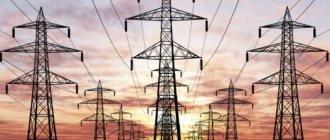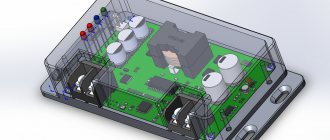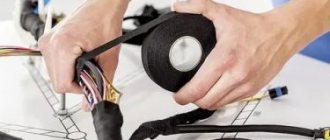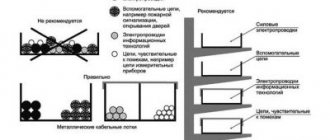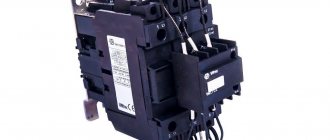Profession electrician
Profession electrician - description
Among the blue-collar professions, one of the most skilled and difficult is the profession of an electrician. Since it is difficult, almost impossible to imagine our life without electricity, it is impossible to imagine its functioning without maintenance personnel.
When building a house, it is necessary to lay electrical circuits, connect internal wiring, and ensure the operation of all electrical devices. When assembling or repairing a car, you need to know all the intricacies of the electrical part. The operation of any enterprise is not possible without electricians servicing the equipment. And so you can list it endlessly, and everywhere you need a specialist who will figure it out, connect it and fix it.
The profession of an electrician requires good knowledge in both general technical and special disciplines used in the area with which one has to work. It is not for nothing that enterprises conduct various courses to improve the skills of specialists in this area.
The specificity requires attentiveness and caution, since you have to work in conditions of increased danger. High voltage, which can be fatal to life, an environment in which conditions are created for electric shock. All this puts the profession in the category of dangerous.
On the other hand, for the most part, work is carried out in fairly comfortable conditions of positive temperatures and in enclosed spaces. Most often, the most difficult thing is finding the fault, not repairing it.
History of the electrician profession
This profession arose quite a long time ago - at the end of the 19th century. In general, when the world learned about electrical energy. When power plants arose, there was a need for people who could control the equipment, which cost a lot of money.
The first electricians appeared in England and the USA. A little later, electricians penetrated into Russia. At the beginning of its existence, this profession was in great demand. After all, few people understood complex electrical appliances.
Electrician, electrician or electrician?
Ordinary people often confuse electricians, electricians and electricians. What's the difference?
An electrician is a specialist who installs electrical equipment and participates in its commissioning. He is not involved in the maintenance and repair of electrical equipment - this is his main difference from an electrician, whose responsibilities include both installation of equipment and its repair.
Another important nuance is that the electrician installs large-sized and complex electrical equipment: transformers, transformer points, distribution substations, power line supports, etc.
Whereas the electrician's responsibilities include small electrical consumers, for example: water pumps, a lathe, a spotlight, etc.
The electrician is completely occupied with the simplest installation: installing an electric energy meter, socket or switch, laying cables in an office or apartment, and so on.
Education
If you want to take up the position of an electrician in the future, then you must undergo appropriate vocational training . Thus, in order to get a job, you must present the employer with a diploma of secondary vocational education. It should immediately be noted that the position of an electrician is suitable for a person who is interested in the exact sciences (mathematics, physics, etc.).
So, after finishing 9th grade you need to choose an appropriate educational institution . If possible, give preference to those educational institutions that are located in large cities or the capital, as they are respected among employers. Before directly enrolling in a technical school or college, you need to visit the admissions office of the educational institution. This will let you know what exams you need to take. During the learning process, you need to pay close attention not only to obtaining theoretical knowledge, but also practical skills. Thus, during the course of your education, you will undergo mandatory internships and internships, which are an integral part of your education. Thus, you will acquire skills that will be indispensable in the process of direct work.
However, even after receiving a basic diploma, the educational process of an electrician does not end. A specialist who wants to remain relevant in the labor market and advance his career must regularly attend various educational events : conferences, master classes, lectures, etc. Remember that the level of your education will directly affect the level of your salary. As you can see, an electrician is a working profession that requires extensive educational training.
The professional activity of such a specialist is associated with a high level of responsibility; accordingly, employers often place increased demands on applicants.
Electrician and electrician are professions with similar responsibilities. Representatives of both positions must undergo electrical safety training. The responsibilities of electricians and electricians differ slightly. The electrician has extensive experience in solving everyday problems with wiring in private houses and apartments. He can also fix faults in electrical panels. That is, calling an electrician to your home is a necessary service for those who live in the house. Electricians work at an industrial facility. That is, their specialty is more extensive. They can lay an overhead electrical line between two poles. Electricians also carry out installation and maintenance work on power lines and commissioning of transformers. In addition, during the construction of houses, electricians are also involved in laying the electrical line.
Electricians are trained according to an extended course, because their work is more extensive. Electricians and electricians receive education, diplomas and relevant qualifications. Each specialist has a certain rank and access group, which are assigned during practical work. Working with electricity is always fraught with risk, so representatives of both professions must undergo recertification every five years. Once every five years, electricians and electricians are tested and familiarized with new technical devices, documents, safety standards and technologies.
Connecting current to a residential building is the job of an electrician. For this purpose, special devices are used with which you can easily climb onto pillars made of concrete or wood. Electricians also use special safety equipment, which is made of thick rubber. These are gloves and galoshes with a lapel. In this case, dielectric gloves can withstand a voltage of 1000 Volts. The electrical safety permit states that you need to protect yourself as much as possible. If the object has extremely high voltage, then electricians are equipped with safety belts that hold the specialist while working at high heights. An ordinary electrician performs the duties of installation and electrical work, but at the household level, that is, without leaving the confines of a residential building. For example, if sparks appear in the shield, an electrician will help in this case.
What is the difference between an electrician and an electrician, electrician, or electrician?
An electrician creates intermediate installations and equipment on which the behavior of electric current from generators at power plants to electricity consumers depends. They make electrical wiring and lighting in residential buildings, install electric motors, transformers and other equipment in production shops; overhead lines are laid outdoors and cable lines are laid in the ground.
When installing electrical wiring indoors, the electrician makes markings, fastens wires to supports, connects electrical wiring and electrical equipment to power sources and checks their operation. When laying overhead lines, electricians at the sites where the supports are installed use mechanisms to tear off holes and lift the supports, then use winches and other mechanisms to hang and secure the wires on them.
An important role in the work of an electrician is played by making various connections to each other. The connection is carried out by soldering, twisting, followed by soldering, welding and pressing. Installation of electrical equipment involves the ability to read electrical diagrams, understand various types of connections, and find and troubleshoot problems.
- Work in Moscow: ELECTRICAL INSTALLER, LABORATORY TECHNICIAN, ELECTRICAL ENGINEER, POWER ENGINEER, ELECTRICIAN, ELEVATOR ELECTRICAL INSTALLER, ELECTRICAL INSTALLER, ELECTRICAL INSTALLER, ELECTRICAL INSTALLER, ELECTRICAL INSTALLER, REPAIR OF REFRIGERATED CONTAINERS, ELECTRICAL INSTALLER, ELECTRICAL INSTALLER, ELECTRICIAN, ELECTRICAL INSTALLER, DIGGER, ELECTRICAL INSTALLER TP, RTP, ELECTROMECHANIC , ELECTRICAL INSTALLER ON DUTY, ELECTRICAL INSTALLER, LEADING ENGINEER in Moscow - Electrical installation, power supply
It has been said more than once that organizing a comfortable life today is inextricably linked with the use of a variety of electrical appliances. Therefore, it is not surprising that the services of specialists whose work is related to the installation, repair and maintenance of electrical equipment are extremely popular both among the population and in the industrial production sector. These specialists also include representatives of the electrician profession.
It has been said more than once that organizing a comfortable life today is inextricably linked with the use of a variety of electrical appliances. Therefore, it is not surprising that the services of specialists whose work is related to the installation, repair and maintenance of electrical equipment are extremely popular both among the population and in the industrial production sector. These specialists also include representatives of the electrician profession.
.
It should be noted that the uninitiated layman, as a rule, does not see the difference between an electrician, an electrician or an electrician. Any specialist who works with electricity and electrical engineering is simply called an electrician. And this is wrong, since an electrician, an electrician, and an electrician are different professions, whose representatives have their own responsibilities determined by the specifics of the work. You can learn about what electricians or electricians do from our articles devoted to these professions. And today we’ll talk about the features of an electrician’s work, and tell you what personal qualities you need to have to become a true professional.



